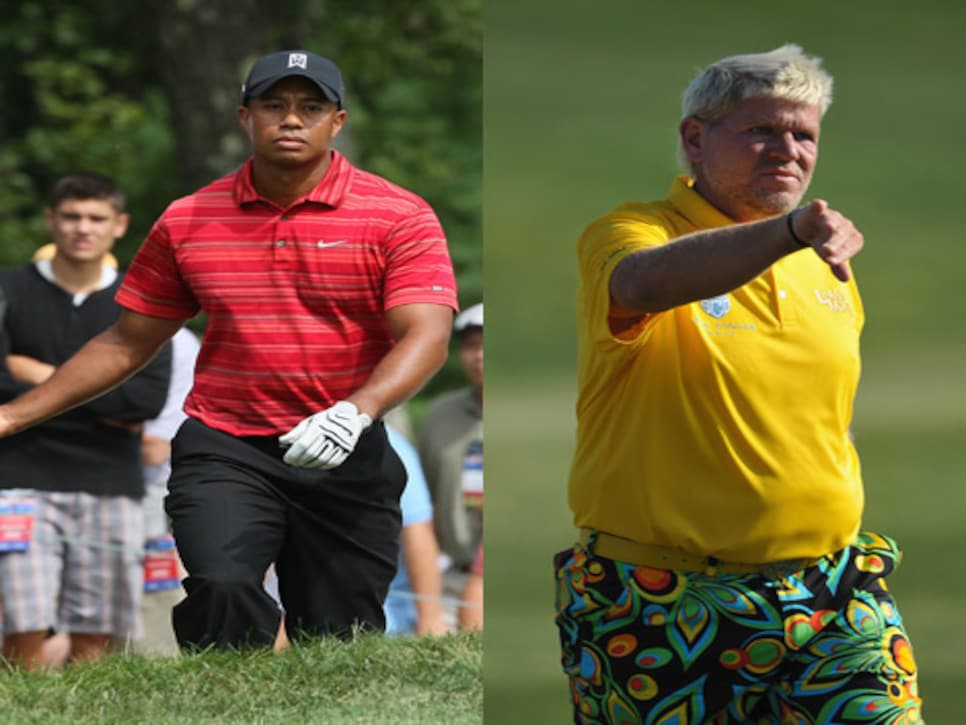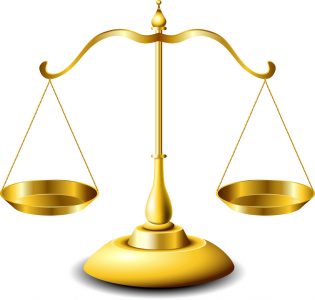
The debate over whether or not golf is a sport wages on the internet, in bars, amongst sportswriters, and even on the golf course.
Proponents reason that golf meets the definition of “sport” found in the dictionary, requires physical exertion and coordination, and is recognized as a sport by sporting goods companies, athletic associations, fans, the media, and more (Bailey). Opponents say golf is better described as a “game” rather than a sport. They claim it does not require rigorous physical activity, particularly in the cardiovascular sense, and can be played professionally by people who are overweight, injured, or “non-athletic” (Potts Harmer). They point to golf’s role as a social, leisurely activity throughout history.
Golf isn’t a sport, it’s a game. I’m not saying it’s not a difficult game, with lots of mental stuff. But it’s not a sport like mine. Where is the combat, the intensity of what we do?
Conor McGregor, Mixed Martial Artist
I treat golf as a sport. I let other people treat it like a hobby.
Tiger Woods, Professional Golfer
For people who are not particularly interested in golf, this debate may seem very trivial. Why does it matter what you call the activity? The truth is, the debate is much deeper than the overt arguments laid out by these sports writers.
Throughout history and especially today, sports are highly valued in society for all sorts of functions. From social gatherings to gambling to simply being entertained by the skills of specialized individuals, people spend mass amounts of time on sports. They form rivalries and establish geographic pride behind teams. The Fox Corporation reported that in 2018 sports accounted for 88 of the 100 most watched television broadcasts of the year. According to PwC, in 2018 the sports industry in North America was valued to be worth over 71.06 billion dollars. The scope of sports is so massive that you could argue it impacts almost every person in some way.
But don’t just look at the statistics; think back to when the Covid-19 pandemic started causing panic in the United States in March of 2020. It was a direct result of the coverage of large sporting events reporting on athletes contracting the virus. Specifically, Rudy Gobert of the Utah Jazz served as a catalyst, halting the NBA. As soon as sports began shutting down, schools and workplaces did too. Amid the pandemic, many people were bored senseless without their regular dose of live sports.
People love sports. So, for people wondering why the proponents of the golf debate are wanting to be included as a sport so badly, it seems to me the answer is clear. Respect.

Sports in our society are thought of as a pathway for people who are highly skilled and work hard. We show these perceptions by idolizing the athletes and traditionally paying them handsomely. It’s a privileged lifestyle for those who are talented enough to have it.
But how does society value “games”? In many cases, “games” are something for your free time. A thing for fun, not for productivity. This is the difference the proponents of the golf debate are set upon. By describing their passion as a “game”, they feel they are being belittled—told their passion is not a worthwhile pursuit, and that it does not deserve idolization and praise.
The violence of some proponent’s reactions to is surely a result of golf’s role as a major sport in the past, and their large presence today. They feel they are being downgraded. According to Forbes, golf in the United States perpetrated 84 billion dollars in economic activity in 2016. A 2016 poll by Public Policy Polling found that twenty three percent of Americans, which applied to the population would estimate about 75 million people, said they were fans of golf. Among other things, preparators cite this as their reasoning for why golf is a sport. They have the media, the sponsorships, the audience, the revenue, the celebrities, etcetera; they feel entitled to the same title, and innate respect, because they are doing many of the same things. When we consider the “ego” of the golf like this, it almost seems like a fight for equality. So why is there a population of opponents trying to gatekeep the title of “sport”?
Surprise. The answer is respect again. Or perhaps “ego” if we’d like to call it that. If you look into the debate, the majority of the opposition consists of people who higher value other “sports”. This is where their ego comes into play. The opposition feels putting golf next to a more physically rigorous one, like say football, and calling them both sports detracts from the image of sports, commanding less respect. This is shown through language like “golf requires nowhere near as much effort physically or calories as almost any other sport” (Potts Harmer).
This language brings another value to light as well.
Why would the comparative level of cardiovascular activity be put at the forefront of this debate? Because in our idolization of people throughout history, athletes have been the image of a healthy, attractive body. Standards of beauty are set based on those who spend their time on activities that just so happen to shape their bodies a certain way. And as the columnists of the Sportster say, “you only need to look at some golfers to see that they are quite clearly not athletes at the peak of their physical conditioning” (Potts Harmer). The opposition in the golf debate fears that if these more average people, as far as physical condition, are labeled “sports athletes”, the sport athlete will no longer carry the same association with being the model body type. This, in turn, would lower their image and perhaps command less respect.

Though we may feel a small urge to side with inclusion, both sides of the argument have valid points. Who is to say for sure how respect might shift with a change in language? The debate seems trivial in nature but is riddled with complexities as we wonder how people have developed to include sports into their identities and attach them to their own egos, as well as how we value “athletic” body types as a model for our own and offer those body types more respect. It doesn’t matter if you don’t care about golf, or even if you don’t care about sports, because if you participate in our society at all, the principles of this debate affect you too.
Works Cited
Bailey, Mike, et al. “Why Golf Absolutely Is a Sport: Nine Legitimate Reasons.” Golf Advisor, Golf Advisor, 21 Oct. 2019, www.golfadvisor.com/articles/why-golf-absolutely-is-a-sport-nine-legitimate-reasons.
Harmer, Alfie Potts. “Top 10 Reasons Golf Is NOT A Sport.” TheSportster, TheSportster, 8 Sept. 2015, www.thesportster.com/entertainment/top-10-reasons-golf-is-not-a-sport/.
Mallon, Bill. “History of Golf at the Games.” International Golf Federation, International Golf Federation, www.igfgolf.org/golf-at-the-olympic-games/.
“What Is the Difference between Games and Sports?: Ask The Editor: Learner’s Dictionary.” Learner’s Dictionary, Merriam Webster, 10 Oct. 2019, www.learnersdictionary.com/qa/What-Is-the-Difference-between-Games-and-Sports.
